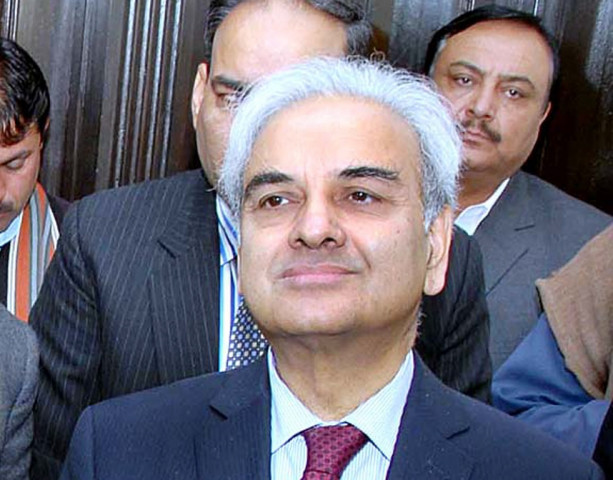Anti-terrorism courts: CJP calls meeting to expedite cases
Senior judiciary to discuss disposing pending cases.

Chief Justice of Pakistan Nasirul Mulk has called a special meeting of all chief justices of high courts and in-charge monitoring judges of anti-terrorism courts (ATCs) on December 24.
According to the Supreme Court (SC) declaration, the meeting will consider different proposals regarding the expeditious disposal of cases under anti-terrorism law. Moreover, all the courts have also been asked to submit the details of such cases to SC by December 23.
According to sub-section 7 of section 19 of the Anti-Terrorism Act (ATA) 1997 which defines the procedure and power of the ATC “the court shall proceed with the trial on a daily basis and decide the case within seven working days”.

The law further says that if the court does not meet this deadline, an application may be made to the administrative judge of the high court concerned to pass the ‘appropriate directions’ to ensure “expeditious disposal of the case to meet the end of justice.”
Sub-section 8 of section 19 adds that the ATC “shall not adjourn any trial for any purpose unless such adjournment is in its opinion necessary in the interest of justice and no adjournment shall in any case be granted for more than two working days”. Contrary to this, cases are adjourned for weeks and months on end.
A senior prosecutor in Punjab says that laws are available regarding the disposal of cases but there are short-comings about the implementation of such laws by the police and trail courts. Another active lawyer Chaudhry Faisal Hussain raising question over the institution of cases against politicians in ATCs stated that these courts should only take up cases related to the militants.
A Human Rights activist Dr Farzana Bari states that ATCs were established after promulgation of the Anti-Terrorism Act (ATA) 1997, to fast-track cases against terrorists.
“The parallel judicial infrastructure of the ATC under this Act was created for speedy justice. However, the track record of ATCs shows complete failure in awarding punishment to terrorists. The conviction rate of terrorists in these courts is extremely low. They are often set free on the pretext of a lack of evidence whereas the state has been actively using ATCs to politically victimise human rights activists, who are seen as the real threat to the state and the status quo,” she adds.
A senior official in Law and Justice Commission of Pakistan told The Express Tribune that the department would give its proposals regarding the expeditious disposal of cases under anti-terrorism law, adding that protection of judges, witnesses as well as investigating officers are very important for giving punishment to the terrorists because they release due to lack of witnesses.
In 14 ATCs of Punjab, about 1,000 cases are pending. In the month of June, more than 17,000 cases are pending at the five functional ATCs in Sindh. Out of the 17,000 cases in Sindh, around 11,000 are only from Karachi. Khyber-Pakhtunkhwa, which despite being the most terror-hit province, has only 146 cases in its ATC docket, according to director-general prosecution Naimatullah Khan Gandapur.
Similarly, a larger bench of the SC will take up the matter related to determining the fate of over 8,000 death row prisoners across the country in the third week of January.
Published in The Express Tribune, December 20th, 2014.



















COMMENTS
Comments are moderated and generally will be posted if they are on-topic and not abusive.
For more information, please see our Comments FAQ